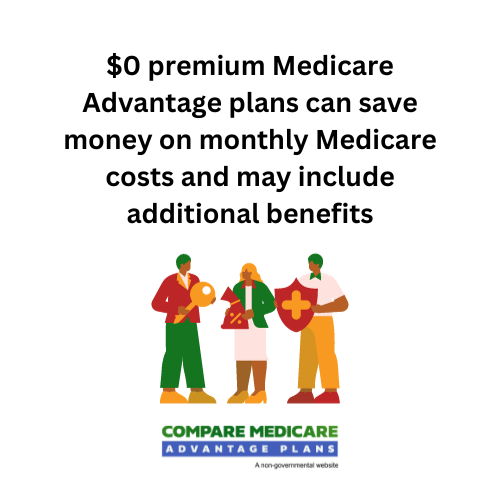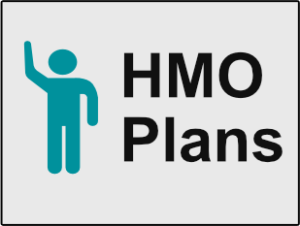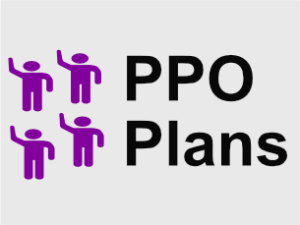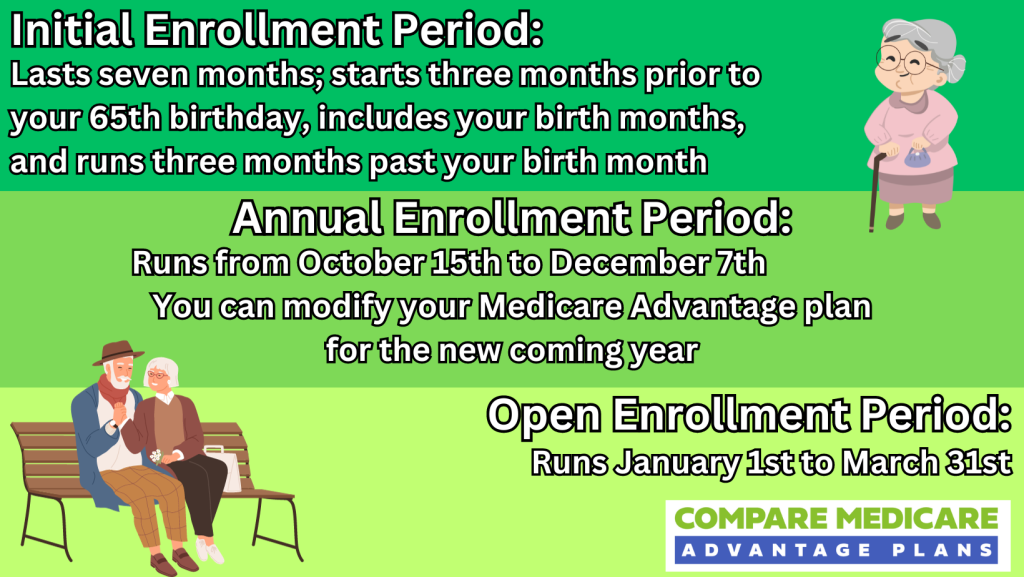How Can Medicare Advantage Plans Cost $0?
Some $0 premium Medicare Advantage plans may exist, and they could offer valuable benefits for eligible individuals. This article will explore the potential $0 Medicare Advantage plans and uncover the secrets behind their existence.
This article will also explore the potential factors that might enable the availability of $0 premium Medicare Advantage plans, weigh the potential pros and cons, and discuss different types of Medicare Advantage plans. This guide could also provide tips for choosing the best plan for your individual needs and help you navigate the eligibility and enrollment process.
Key Takeaways
- Government subsidies and private insurance companies will likely enable the availability of $0 Medicare Advantage plans, with some plans including associated costs such as copayments, coinsurance, and deductibles.
- Careful evaluation of all related costs could be essential for selecting a plan that meets individual healthcare needs.
- Comparison tools are available to help users make an informed decision on the best Medicare Advantage plan for their needs.
Compare Plans in One Step!
Enter Zip Code
The Reality of $0 Medicare Advantage Plans
$0 Medicare Advantage plans will likely be available due to government subsidies and the involvement of private insurance companies.
Some of these plans could offer value-added health coverage, which might include an annual limit on certain out-of-pocket costs and Part B coverage for some services beyond Part A.
However, keep in mind that some of these Medicare Advantage plans may not be completely free since they may come with extra costs like copayments, coinsurance, and deductibles.

Medicare Advantage plans are a type of Medicare supplement plan that could receive a set rate per person, per year from the government.
This potential financial support might allow private insurance companies to manage some of their costs and maintain their provider networks, possibly making $0 premium Medicare Advantage plans a reality.
Government Subsidies
The government may significantly contribute to subsidizing $0 premium Medicare Advantage plans by potentially providing a fixed rate per person, annually. This financial support may come from federal funding, subscriber premiums, and Medicare Parts A, B, and D.
The government, with its established rate, could allow insurance companies to provide $0 premium Medicare plans to qualifying individuals.
Role of Private Insurance Companies
Private insurance companies may also offer $0 premium Medicare Advantage plans due to the fixed sum of money they might receive from Medicare to cover Part A and Part B expenses. Some of these companies may manage costs by potentially implementing strategies such as:
- Risk adjustment
- Provider networks
- Care coordination
- Utilization management
- Value-based care
As a result, private insurance companies could maintain their provider networks and potentially offer Medicare Advantage plans that might come with varying premiums, including $0 options.
Evaluating the Potential $0 Premium Medicare Advantage Plans
Opting for a $0 premium Medicare Advantage plan will likely mandate meticulous evaluation of related costs, like:
- deductibles
- coinsurance
- copays
- coverage
It may also be important to assess the quality of the plan’s provider network and the possibility of higher out-of-pocket costs.

Some Medicare Advantage plans may also include prescription drug coverage, but the specifics may vary by plan. For a well-rounded decision, you should compare different plan options, considering the potential factors such as out-of-pocket costs, provider networks, and prescription drug coverage.
Out-of-Pocket Costs
Although some of the zero-premium Medicare Advantage plans might not offer a monthly premium, they may still incur costs such as copayments, coinsurance, and deductibles. These potential cost-sharing amounts may apply to covered medical services, which individuals should consider when selecting zero-premium plans.
Provider Networks
Limited provider networks might be a common feature of certain $0 premium Medicare Advantage plans, which could help to control various costs while offering comprehensive health coverage. These networks may consist of doctors, hospitals, and other healthcare providers contracted with the plan.

However, using out-of-network providers may result in higher costs or may not be covered at all.
Therefore, it’s important to ensure that your preferred healthcare providers might be included in the plan’s network before selecting a $0 premium Medicare Advantage plan.
Prescription Drug Coverage
Some of the Medicare Advantage plans may also offer prescription drug coverage as part of their benefits package through Medicare Part D.

However, coverage details may vary by plan, and there may be restrictions for prescription drug coverage in certain $0 premium Medicare Advantage Plans.
Members should consider reviewing the potential plan details for a clear understanding of the coverage and any existing restrictions.
Pros and Cons of $0 Premium Medicare Advantage Plans
Before deciding on a zero-premium Medicare Advantage plan, it’s essential to weigh the potential benefits and drawbacks.
 Some of these plans could offer financial advantages, such as a $0 monthly plan premium and potential cost savings compared to other plans.
Some of these plans could offer financial advantages, such as a $0 monthly plan premium and potential cost savings compared to other plans.
They may also provide additional benefits beyond Original Medicare, such as prescription drug coverage.
However, some $0 premium Medicare Advantage plans may have limitations, such as restricted provider networks and potentially higher out-of-pocket costs.
Additionally, the monthly cost for Medicare Part B may still apply, which will likely include the Medicare Part B premium.
Considering these potential factors could enable individuals to make a well-rounded decision on whether a $0 premium Medicare Advantage plan best suits their healthcare needs.
Possible Benefits
Some of the $0 premium Medicare Advantage plans might save money on monthly Medicare costs and may include additional benefits such as prescription drug coverage, dental coverage, vision coverage, and hearing coverage.
In comparison, some of the Medicare supplement plans may offer different coverage options and will likely be designed to work alongside Original Medicare.
Some of these potential health insurance plan options could offer value for eligible individuals who might desire comprehensive health coverage without excessive costs.
Types of Medicare Advantage Plans
There are three main types of Medicare Advantage plans: Health Maintenance Organization (HMO), Preferred Provider Organization (PPO), and Medical Savings Accounts (MSA). Understanding the differences between these plans can help you select the best option for your healthcare needs.
HMO plans typically require you to receive care from in-network providers and may necessitate a primary care physician (PCP). PPO plans offer more flexibility in choosing healthcare providers, allowing you to visit any Medicare-approved doctor without a referral, but you may pay less if you use providers within the plan’s network.
MSA plans combine a high-deductible health plan with a savings account, giving you more freedom to choose your healthcare providers but requiring you to pay for services until you reach the deductible.
Health Maintenance Organization (HMO)

The majority of Medicare Advantage plans are HMOs, which have a restricted provider network.
These plans focus on managed care and coverage of care from in-network doctors, hospitals, and other healthcare providers, which is beneficial for cost control and care coordination for Medicare beneficiaries.
However, using out-of-network providers may result in higher costs or may not be covered at all.
Preferred Provider Organization (PPO)
 PPO plans offer more flexibility in choosing healthcare providers than HMO plans.
PPO plans offer more flexibility in choosing healthcare providers than HMO plans.
You can visit any doctor or specialist without a referral, and you will pay less if you use providers within the plan’s network.
PPO Medicare Advantage plans typically have higher monthly premiums but provide greater freedom in selecting healthcare providers and accessing specialized care when necessary.
Medical Savings Accounts (MSA)
MSAs are a type of Medicare Advantage plan with some of the following features:
- No monthly premiums
- High deductible
- The government will likely deposit funds into a savings account for medical expenses associated with the plan, which could be used for any medical expenses, including the deductible.
MSAs provide more freedom in choosing healthcare providers but require you to pay for services until you reach the deductible.
Eligibility and Enrollment in Medicare Advantage Plans
To avail of a Medicare Advantage plan, enrollment in Original Medicare is one of the prerequisites. This enrollment is mandatory to become eligible for a Medicare Advantage plan.

Enrollment in Original Medicare is typically required for individuals aged 65 or older, but certain individuals may be eligible before age 65 if they have a disability or End-Stage Renal Disease.
Enrollment in Medicare Advantage plans is confined to certain times of the year.
The Medicare Advantage open enrollment period occurs annually from January 1st through March 31st, and the general enrollment period is a 7-month window that starts 3 months before the month you turn 65 and ends 3 months after your 65th birthday. Special enrollment periods may also apply depending on your situation.
To enroll, call one of our licensed agents at 1-833-641-4938 (TTY 711), Mon-Fri 8 am-9 pm EST. They can provide comprehensive information, personalized guidance, and ongoing assistance to navigate the enrollment process for private insurance companies, making it easier for beneficiaries to make informed decisions about their healthcare.
Qualifying for Medicare Advantage
Eligibility for Medicare Advantage requires:
- Enrollment in Original Medicare (Parts A and B), which makes individuals Medicare Advantage enrollees
- Generally, individuals aged 65 or older are eligible for Medicare Advantage, but there may be exceptions for those with disabilities or End-Stage Renal Disease
- U.S. citizenship or permanent legal residency for at least five continuous years is also required.
Enrollment Periods
Enrollment in Medicare Advantage plans is restricted to certain times of the year, including the open enrollment period from January 1st through March 31st and the general enrollment period, which is a 7-month period surrounding your 65th birthday.
Special enrollment periods may also apply depending on your situation, such as if you sign up for Part A and/or Part B due to an exceptional circumstance or if you have employer coverage.

Tips for Choosing the Right Medicare Advantage Plan
Choosing the most suitable Medicare Advantage plan for your individual will likely entail evaluating your potential healthcare needs and comparing plan options. You might want to consider potential factors like:
- Premiums and cost-sharing
- Health status and healthcare usage
- Supplemental coverage and premiums for that coverage
- Medicare Advantage plan benefits
- Network of providers and pre-authorization requirements
By evaluating your potential needs and preferences, you could make an informed decision about the best Medicare Advantage plan for you.
Various tools will likely be available to help you evaluate the potential plan benefits, prescription drug coverage, and costs. Additionally, you may want to consider other factors such as the type of plan (HMO, PPO, etc.) and any specific needs or preferences you may have when choosing a Medicare Advantage plan.
Assessing Personal Needs
When selecting a Medicare Advantage plan, you should also consider your healthcare needs, budget, and preferred providers. By taking your potential needs into account, you could ensure that you select a plan that accommodates your requirements and could provide the most value for your money.

If you have a chronic illness or require regular medication, it may also be crucial to choose a plan that could provide the necessary coverage and access to the healthcare providers you trust and prefer.
Comparing Plan Options
To compare different Medicare Advantage plan options, you may utilize this website.
By entering your zip code into any of the zip code boxes on this site, you can:
- Compare different Medicare Advantage and Prescription Drug Plans
- Focus on drug coverage and costs to find the perfect fit for your healthcare needs
- Input your information and sort through a variety of plans
- Weigh the pros and cons of each based on your situation
Summary
Some of the $0 premium Medicare Advantage plans could offer a unique opportunity for eligible individuals to receive comprehensive health coverage without a monthly premium. However, it’s crucial to weigh the possible benefits and drawbacks of these plans, such as limited provider networks and potential out-of-pocket costs.
By understanding the differences between HMO, PPO, and MSA plans, assessing personal needs, and comparing the potential plan options, you could make an informed decision about the best Medicare Advantage plan for your healthcare needs.
Ultimately, the right Medicare Advantage plan for you will likely depend on your individual healthcare needs, budget, and preferred providers. By carefully evaluating your options and taking advantage of available resources, you can choose a plan that provides the best coverage and value for you.
Frequently Asked Questions
→ How do zero-dollar Medicare Advantage plans work?
$0 Medicare Advantage plans will likely have no monthly premium, and Medicare may also pay a fixed amount of money to the insurance company for coverage. Some of these plans may also include lower copays and no deductibles, as well as additional benefits such as prescription drug coverage and routine dental services.
→ What is the biggest advantage of Medicare Advantage?
One of the biggest advantages of Medicare Advantage might be its broad range of choices for doctors and medical offices.
→ How do government subsidies contribute to the availability of $0 premium Medicare Advantage plans?
Government subsidies will likely enable private insurance companies to provide $0 premium Medicare Advantage plans to eligible individuals by providing a set rate per person, that could cover some of the Part A and Part B expenses.
→ What are the differences between HMO, PPO, and MSA Medicare Advantage plans?
HMO plans require in-network providers and a primary care physician, whereas PPO plans offer more flexibility in provider selection and MSA plans combine a high-deductible health plan with a savings account.
→ When can I enroll in a Medicare Advantage plan?
You can enroll in a Medicare Advantage plan during the open enrollment period from January 1st through March 31st, the general enrollment period, or depending on your situation, a special enrollment period.

ZRN Health & Financial Services, LLC, a Texas limited liability company
Russell Noga is the CEO of ZRN Health & Financial Services, and head content editor of several Medicare insurance online publications. He has over 15 years of experience as a licensed Medicare insurance broker helping Medicare beneficiaries learn about Medicare, Medicare Advantage Plans, Medigap insurance, and Medicare Part D prescription drug plans.



